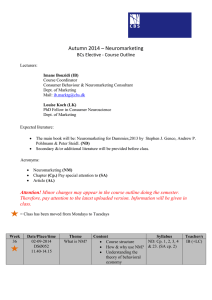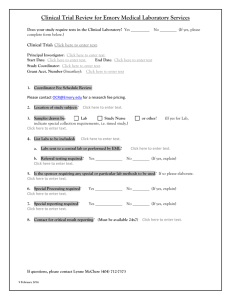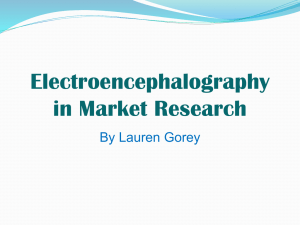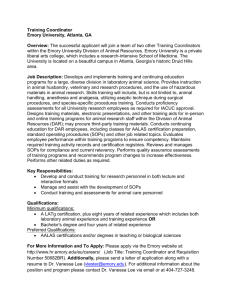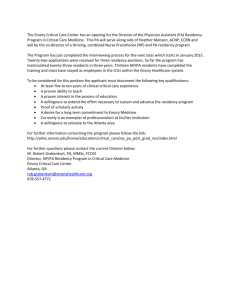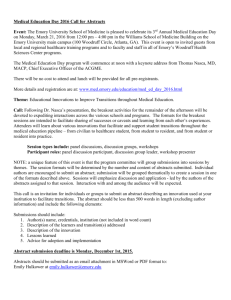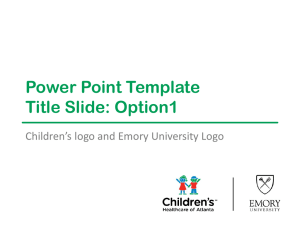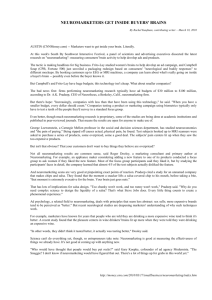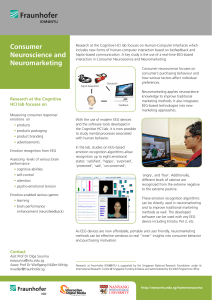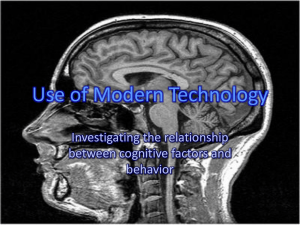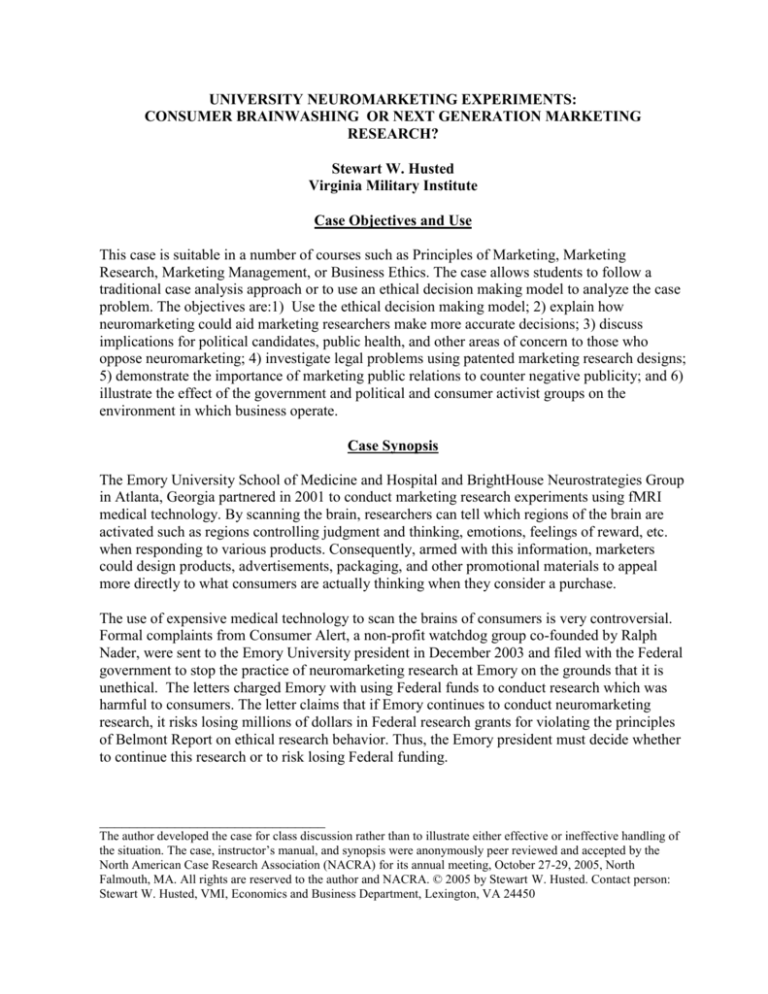
UNIVERSITY NEUROMARKETING EXPERIMENTS:
CONSUMER BRAINWASHING OR NEXT GENERATION MARKETING
RESEARCH?
Stewart W. Husted
Virginia Military Institute
Case Objectives and Use
This case is suitable in a number of courses such as Principles of Marketing, Marketing
Research, Marketing Management, or Business Ethics. The case allows students to follow a
traditional case analysis approach or to use an ethical decision making model to analyze the case
problem. The objectives are:1) Use the ethical decision making model; 2) explain how
neuromarketing could aid marketing researchers make more accurate decisions; 3) discuss
implications for political candidates, public health, and other areas of concern to those who
oppose neuromarketing; 4) investigate legal problems using patented marketing research designs;
5) demonstrate the importance of marketing public relations to counter negative publicity; and 6)
illustrate the effect of the government and political and consumer activist groups on the
environment in which business operate.
Case Synopsis
The Emory University School of Medicine and Hospital and BrightHouse Neurostrategies Group
in Atlanta, Georgia partnered in 2001 to conduct marketing research experiments using fMRI
medical technology. By scanning the brain, researchers can tell which regions of the brain are
activated such as regions controlling judgment and thinking, emotions, feelings of reward, etc.
when responding to various products. Consequently, armed with this information, marketers
could design products, advertisements, packaging, and other promotional materials to appeal
more directly to what consumers are actually thinking when they consider a purchase.
The use of expensive medical technology to scan the brains of consumers is very controversial.
Formal complaints from Consumer Alert, a non-profit watchdog group co-founded by Ralph
Nader, were sent to the Emory University president in December 2003 and filed with the Federal
government to stop the practice of neuromarketing research at Emory on the grounds that it is
unethical. The letters charged Emory with using Federal funds to conduct research which was
harmful to consumers. The letter claims that if Emory continues to conduct neuromarketing
research, it risks losing millions of dollars in Federal research grants for violating the principles
of Belmont Report on ethical research behavior. Thus, the Emory president must decide whether
to continue this research or to risk losing Federal funding.
______________________________
The author developed the case for class discussion rather than to illustrate either effective or ineffective handling of
the situation. The case, instructor’s manual, and synopsis were anonymously peer reviewed and accepted by the
North American Case Research Association (NACRA) for its annual meeting, October 27-29, 2005, North
Falmouth, MA. All rights are reserved to the author and NACRA. © 2005 by Stewart W. Husted. Contact person:
Stewart W. Husted, VMI, Economics and Business Department, Lexington, VA 24450


